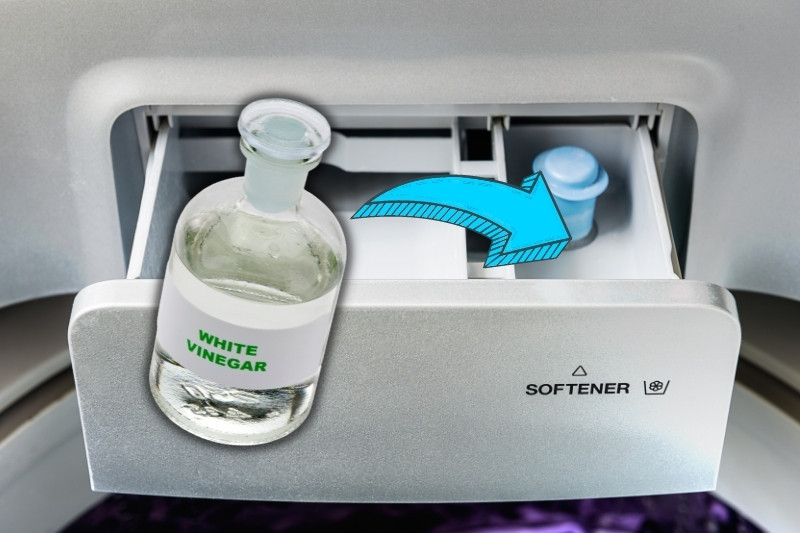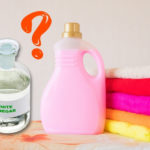It’s no longer a secret that vinegar is one of the best alternatives to commercial laundry detergents. Since it can loosen zinc salts and aluminium chloride, vinegar removes dirt from clothes. This makes it a natural cleaning agent for washing clothes.
However, people often wonder whether vinegar has other laundry applications. Specifically, whether it can be used as a fabric softener. Here we’ll look at the answer in detail and give you all the info you need to know.
Can Vinegar Be Used as a Fabric Softener?
Vinegar is not only an excellent alternative to laundry detergent, but it is also an excellent alternative to fabric softener.
Fabric softeners work in different ways. In the case of vinegar, because it is mildly acidic, it can dissolve the alkaline soap residue that builds up on fabric after washing. Because of this, you get a fluffier, softer texture.
Why Use Vinegar as a Fabric Softener?
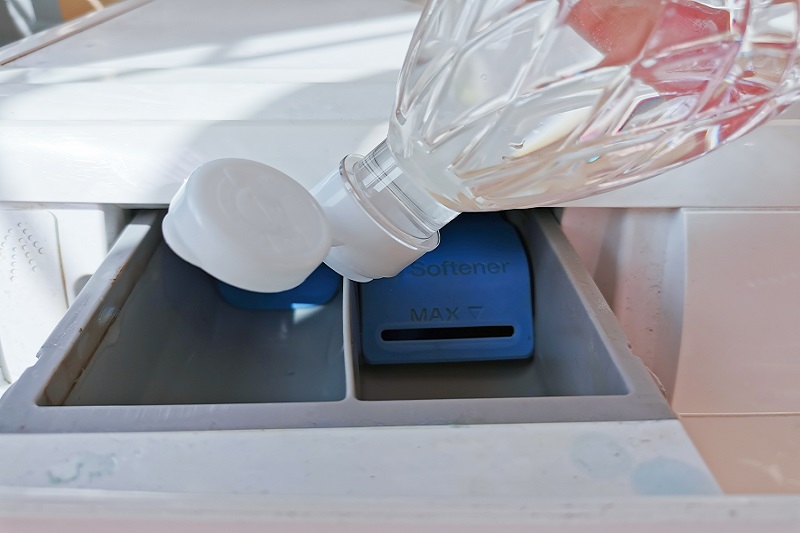
Since there are many commercial fabric softeners available, why would you want to use vinegar as a fabric softener?
Here are some reasons to consider using vinegar instead.
1. Vinegar does not leave a scent on your laundry
When you use vinegar as a fabric softener, your clothes will come out fresh and odourless. The strong vinegar smell is not left behind on the clothes.
Many commercial fabric softeners, on the other hand, will leave heavily scented residue on your clothes. Not everyone finds the scent pleasant, and it can irritate your nose if you are sensitive to strong smells.
2. Vinegar allows you to choose how your laundry smells
Some people like their laundry smelling like lavender or vanilla or something else fragrant and calming. When you use a commercial fabric softener, you get the fragrance that the product imparts. But when you use vinegar, you can add whatever natural fragrance you desire.
You can give your laundry the sweet floral scent of lavender or the upbeat and cheerful scent of orange. All you need to do is add your favourite essential oils to the vinegar for your rinse session.
3. Vinegar is hypoallergenic
Vinegar is free of harsh chemicals, so when you use it as a fabric softener, you wouldn’t have to worry about chemical residue causing skin reactions or other health issues.
Fabric softeners are made of different chemicals. Some of these chemicals remain on your clothes after washing. The chemical residue is what imparts after-wash scents on laundry. Sadly, if you have sensitive skin, these chemical residues can irritate your skin and cause an allergic rash.
The chemicals in fabric softeners may cause more serious problems. For example, most fabric softeners contain quaternary ammonium compounds, known as quats for short. These compounds can trigger asthma and may be toxic to the reproductive system.
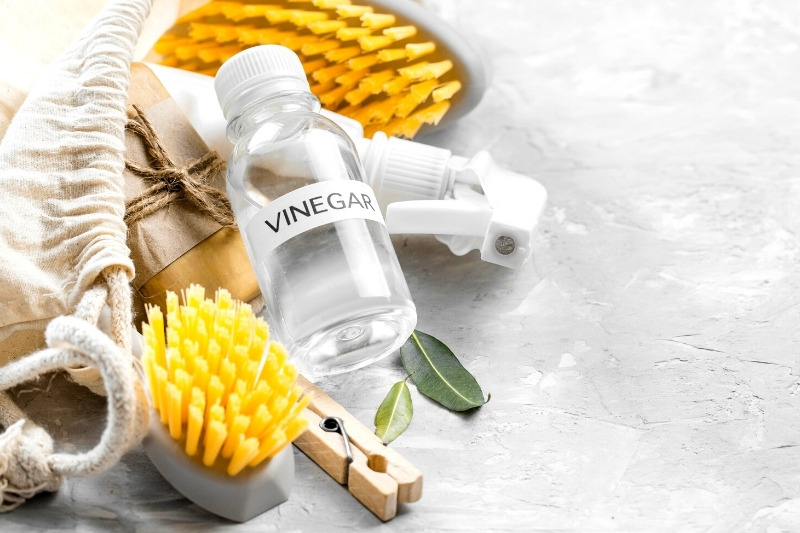
4. Vinegar is eco-friendly
Vinegar is non-toxic and biodegradable, so it doesn’t harm the environment. Many of the harsh chemicals in fabric softeners do harm the environment.
These commercial products often contain petroleum-based chemicals that are not easily biodegradable. These chemicals are also harmful to aquatic life when they are washed down the drain and flow into the water.
5. Vinegar is less expensive
Another good reason to use vinegar instead of a commercial fabric softener is that it is better for your pocket.
Vinegar is generally less expensive than the fabric softeners on the market, so you save money when you use vinegar as a fabric softener. With washing machines and dryers being high-energy machines, doing your laundry can be quite expensive in terms of energy consumption.
If there’s a chance to save money, it’s good to take it. Thankfully, substituting vinegar for commercial fabric softeners offers that chance.
See our guide to where to buy white vinegar in the UK for some affordable options.
How to Use Vinegar as Fabric Softener
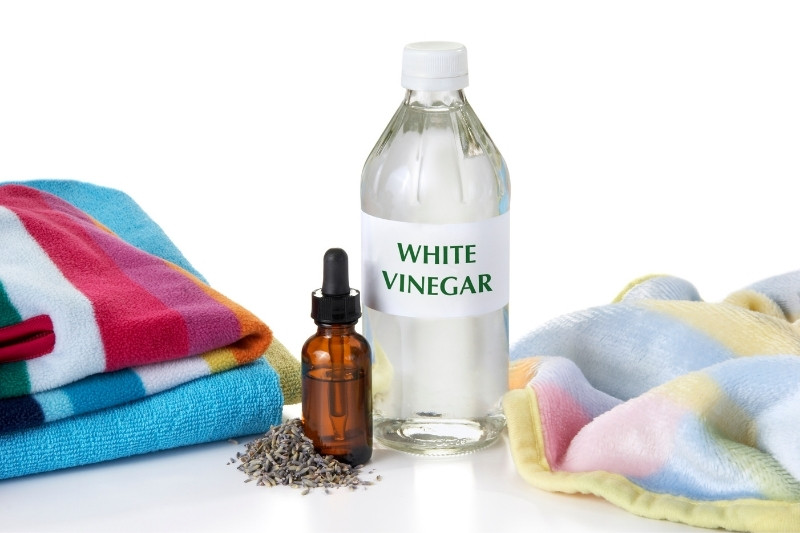
Are you ready to use vinegar as a fabric softener? Here’s the process.
During your final rinse cycle, pour around 100ml of vinegar into the compartment for detergent or fabric softener in your washing machine.
If you are pouring it directly onto clothes, dilute 100ml of vinegar with 200ml of water before pouring.
If you like your fabric softener to have a scent, you can add a few drops of essential oil to the bottle of vinegar you use for your laundry.
Add the drops to the whole bottle of vinegar and not to the quantity you pour into the washing machine. This ensures that the essential oil is properly diluted, because excess oil in the solution can cause skin irritation.
Final Thoughts
Vinegar is an excellent alternative to laundry detergents. It breaks down alkaline residue on laundry to impart a fluffier and softer feel.
You might choose to use vinegar instead of commercial fabric softeners because vinegar is non-toxic, environmentally friendly, and cheaper.

I’m a mother of three who loves going on fun adventures with my family. With three little ones, I’ve learned the hard way how to keep a busy home clean! I want to share my tips and tricks to make your life as easy as possible.
